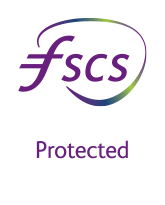Ah, the four S's of summertime: sun, sea, sand and...scams?! Unfortunately, the summer months provide new opportunities for fraudsters to try to relieve you of your money or personal information, using methods that evolve every day. Here are some scams to watch out for this summer.
Holiday horrors
Holiday scams spike at this time of the year when many are searching for last-minute deals to make the most of the dying days of the holidays. Instead of sipping cocktails on the beach or taking a relaxing dip in the pool, many would-be holidaymakers have been stung by sophisticated scams, losing on average £2,400, according to Action Fraud.
To help avoid falling for a holiday scam, it is recommended that you:
-
Check independent reviews before you hand over any money.
-
Make sure the company you’re buying from is an ABTA (Association of British Travel Agents) member and your trip is financially protected by ATOL (Air Travel Organisers License). If you have any doubts, you can verify membership on the ABTA and ATOL websites.
-
If possible, pay for your holiday with a credit card. Most major credit card providers protect online purchases, and are obliged to refund you in certain circumstances.
-
Purchase travel insurance as soon as you’ve confirmed your booking.
You might remember the unsuspecting Londoner who had tourists turn up at their home after falling for a fake accommodation listing on Booking.com in 2022 – not ideal for either party! This sort of scam is rising in popularity, so make sure you avoid it by checking websites for legitimacy, only communicating and paying via official platforms, and not messaging or providing payment through non-official or unusual channels.
Tickets for nothing
Ticketing fraud is becoming rife, particularly on social media, where criminals can easily pretend to be selling tickets to sold-out events. According to Action Fraud, there were over 7,000 reported cases of ticketing scams in 2022. To minimise your risk, follow these steps:
-
Book tickets directly through official sellers who are members of the self-regulatory body, the Society of Ticket Agents and Retailers (STAR), as anything else could be a scam. You can check STAR’s website to confirm membership if you’re unsure.
-
Be wary of paying over the odds on re-sale sites.
-
Don't pay upfront for tickets on social media and be aware of who you're buying them from - particularly on 'buy and sell' pages.
-
If possible, use a credit card when making purchases over £100.
For further information on keeping your details and money safe, visit our fraud and online security hub.



